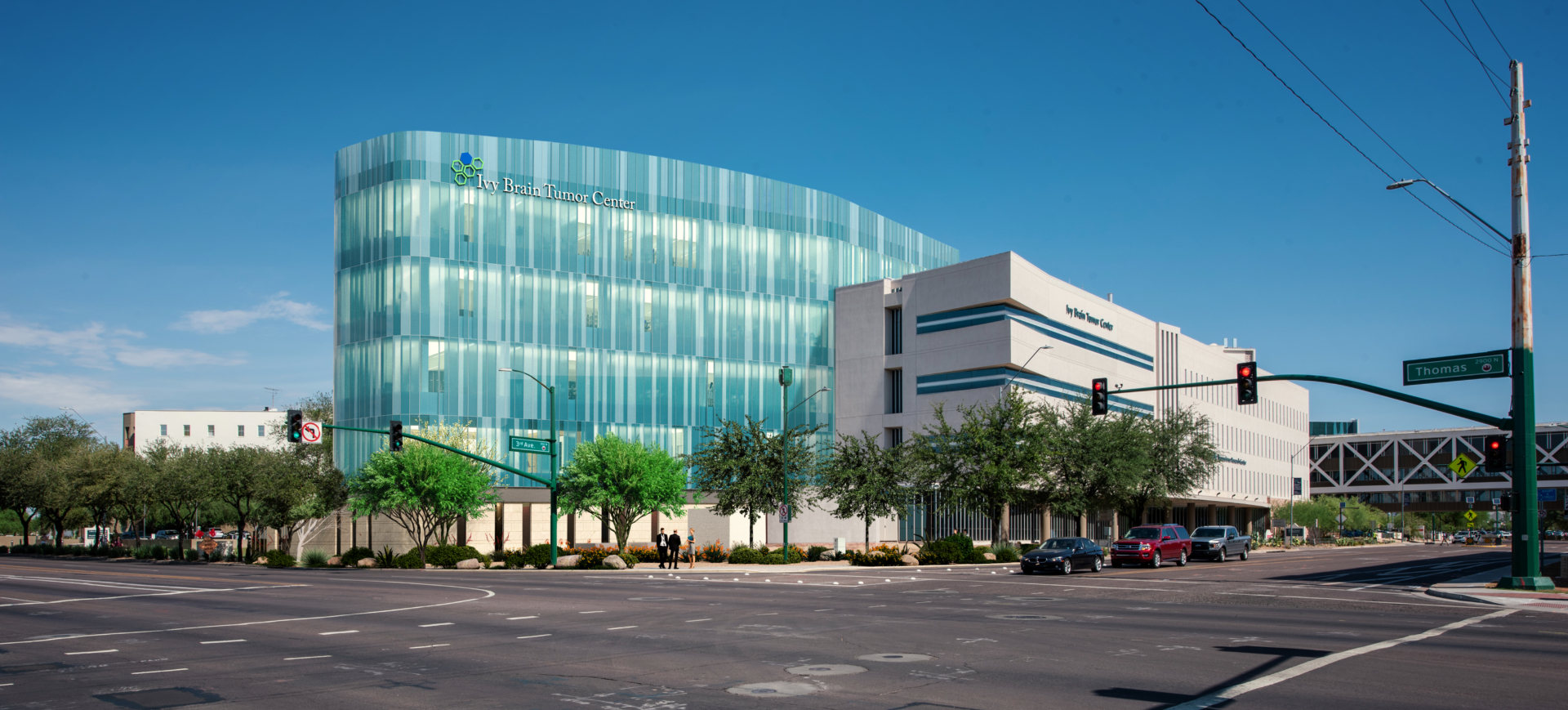The Ivy Brain Tumor Center at Barrow Neurological Institute, the largest Phase 0 clinical trials program for aggressive brain tumors, announced its plans for a new 75,000-square-foot headquarters, with construction beginning in August. The five-story building will be the largest translational research center dedicated to brain tumor drug development in the world.
“The Ivy Center’s global headquarters will rise up both literally and figuratively as a beacon of hope for brain tumor patients all over the world who continue to find themselves at the bottom rung of the world’s drug development priorities. The Ivy Center’s innovative clinical trials and organizational structure are uniquely designed to level the playing field and usher in new drugs that could hold promise for our patients,” says Nader Sanai, MD, director of the Ivy Brain Tumor Center and neurosurgical oncologist at Barrow Neurological Institute.
READ ALSO: Promising treatment for glioblastoma tested at Ivy Brain Tumor Center
In the three years since its inception, the Ivy Center has positioned itself as a disruptive force in the brain tumor arena, screening and treating over 1,000 patients, recruiting over 40 full-time scientists, investigators and operational staff, collaborating with more than 25 biopharma companies, and opening 11 new clinical trials.
Currently, the Ivy Center resides within three buildings on the Dignity Health St. Joseph’s Hospital and Medical Center campus. The new headquarters will bring the program under a single roof, including 30,000 square feet of wet laboratory space, 14,000 square feet for trials infrastructure, 7,000 square feet for multidisciplinary clinical consultation, an MR-guided ultrasound suite, and a video teleconference auditorium.
Construction of the new headquarters is expected to be completed in 2023. It will be located on the Dignity Health St. Joseph’s Hospital and Medical Center campus in Downtown Phoenix, at the corner of Thomas Road and Third Avenue.
The continued success of the Ivy Center’s novel clinical trials program is made possible through the unwavering leadership of the Ben & Catherine Ivy Foundation, and support from the Barrow Neurological Foundation, Barrow Neurological Institute and Dignity Health.
“The progress achieved by the Ivy Center’s Phase 0 clinical trials program has surpassed anything I have seen in the 16 years I have been funding brain cancer research. The new building in Phoenix will serve to leverage this success, so the Center can move even faster to discover and develop a new FDA-approved therapy for brain cancer,” says Catherine Ivy, president and founder of the Ben & Catherine Ivy Foundation.
The announcement comes as the nation recognizes Glioblastoma Awareness Day, which honors the late Arizona Senator John McCain, who lost his life to this aggressive form of brain cancer in 2018. This day is dedicated to increasing public awareness of glioblastoma, honoring those who have been impacted by the disease and supporting efforts to develop better treatment options that will improve patients’ long-term prognosis.
While glioblastoma is considered one of the deadliest forms of brain cancer, with a median survival rate of 15 months, it is also a rare disease, with only about 18,000 new diagnoses each year. For this and other reasons, it has not received the same national attention or industry interest as other, more survivable cancer types.
“As we double-down on our efforts, we think of our patients and their families, past and present, who have suffered from this brutal disease. This is so much more than a new building announcement,” says Dr. Sanai. “It reaffirms our commitment to the brain tumor community that we will leave no stone unturned in the pursuit of new treatment options. We will engage more new agents and partnerships, conduct trials even faster, expand patient diversity and enhance our drug assessments.”
The Ivy Center is singularly focused on changing the narrative for this patient population and fulfilling a long-awaited, unmet need through its Phase 0 clinical trials program. This innovative approach to early-phase trialing addresses scientific and economic obstacles to brain tumor drug development. Through a precision medicine approach matching patients to new drug cocktails, tumor responses are assessed in a fraction of the time and cost typically associated with conventional clinical trials.




